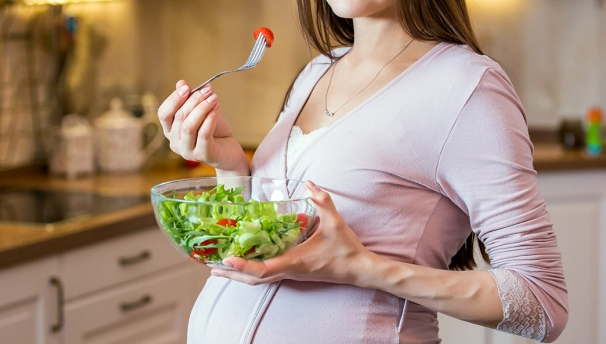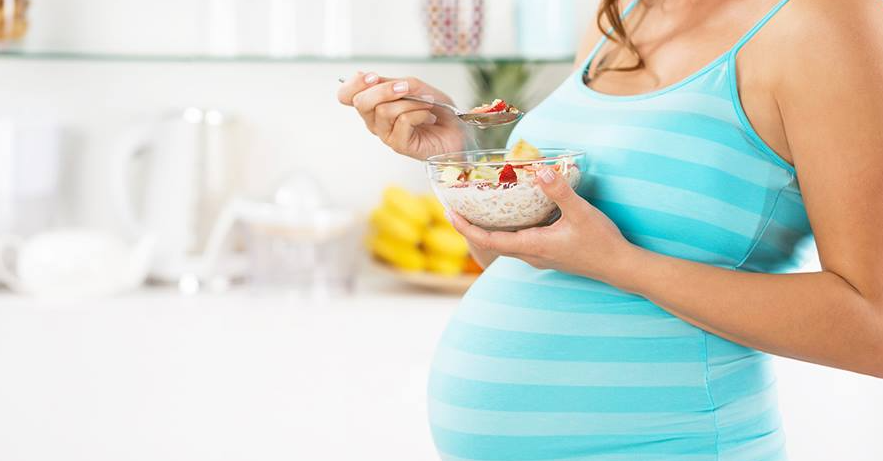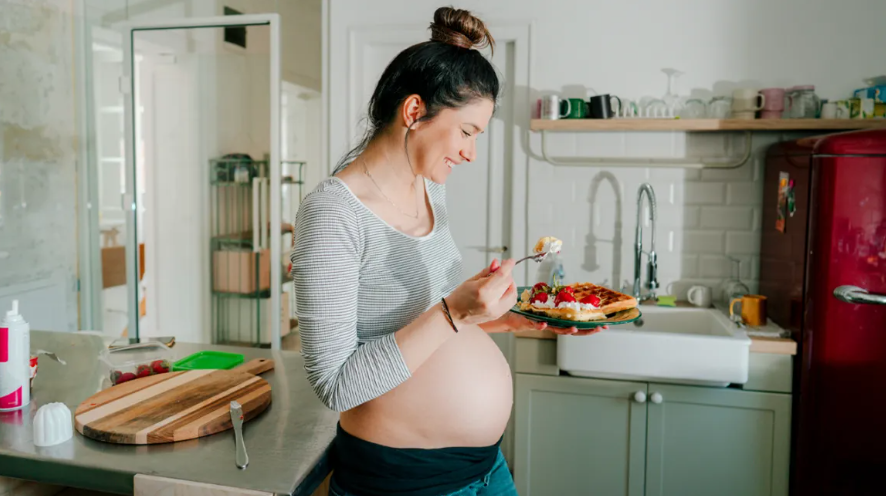Are Pregnant Women Eat Late? – It is said that during pregnancy the mother shares food with her fetus. Whatever the mother eats, the fetus also eats. Because of this, suggestions emerged that pregnant women’s diet must be maintained, do not eat unhealthy foods and eat late. Even though this recommendation has often been heard, quite a few mothers eat unhealthily during pregnancy. The risks involved are no joke and can affect the development of the fetus in the womb. Then what are the chances for pregnant women if they do not eat regularly and unhealthily?
Are Pregnant Women Eat Late? These are the four risks of danger.
Is it a problem when pregnant women eat late?

Pregnant women are strongly advised to maintain their diet by eating nutritious foods regularly. Pregnant women should therefore not eat too late and must always ensure that they can eat on time. Because according to the National Institutes of Health, the mother’s calorie requirement during pregnancy has increased by around 300 calories per day.
That is, if non-pregnant women are recommended to consume about 2000 calories, then calorie intake should be increased to about 2300 calories during pregnancy. Therefore, it can be difficult for pregnant women if you have to eat late or irregularly, e.g. B. during fasting or a diet. Several studies have shown that not eating for long periods of time during pregnancy can increase the body’s production of ketones.
Ketones are molecules or substances the liver produces when the body lacks food intake. It is known that the increased production of ketones can adversely affect the fetus in the womb. The water content in the body also plays an essential role in the development and health of the fetus. Therefore, pregnant women need to keep their bodies well-hydrated. Just like other people, pregnant women are at risk of dehydration if they don’t get the fluids their body needs every day. Many studies show that dehydration during pregnancy can lead to pregnancy disorders such as preterm labor, birth defects, and low amniotic fluid. Doctors usually recommend drinking at least 8 glasses of water every day.
What is the risk if a pregnant woman eats late?

Many studies have found that diet during pregnancy affects fetal health. Therefore, mothers need to be more disciplined in choosing healthy foods, adjusting meal plans and of course adopting a healthy lifestyle during pregnancy. In fact, in a study that performed animal experiments, it was predicted that poor nutrition during pregnancy could have adverse effects for the next three generations. Below are the risks that the fetus may face if the mother eats late and adopts unhealthy eating habits during pregnancy.
-
Pregnant women are more prone to nausea
When nausea occurs, pregnant women can lose their appetites, so it’s not uncommon for mothers to choose to eat absent or no food at all. It’s a mistake that’s often made during pregnancy. Based on the University of California, San Francisco, gapping from the last meal to the next can make mothers feel nauseous during pregnancy. For this reason, pregnant women should not eat too late. Instead, pregnant women are advised to eat smaller portions but more frequently. For example, mothers may eat every hour or two.
-
Babies born with defects
It is not excluded that if the pregnant woman eats late, the baby will be born with defects. This condition is caused by the food intake that a baby should be getting in the womb but isn’t getting because pregnant women don’t eat regularly. For example, folic acid, zinc (zinc), iron, or other vitamins and minerals. In addition, if pregnant women eat irregularly and eat too much junk food and not enough fruits and vegetables, this risk can be even greater. Therefore, mothers need to increase their consumption of foods that increase folic acid, such as avocados, nuts, and dark green leafy vegetables, namely broccoli or spinach.
-
Babies lack calcium
Mothers need to ensure that the food eaten during pregnancy contains sufficient calcium. Yes, mothers should also eat calcium-rich foods during pregnancy. However, if the diet during pregnancy is not followed and is unhealthy, the calcium the fetus should be getting is unavailable.
The fetus requires calcium for the formation and growth of its bones. If the fetus lacks calcium, it may suffer from specific health problems at birth. For this reason, mothers should consume calcium-rich foods regularly and regularly during pregnancy. Moms can count on foods high in calcium, such as milk, yogurt, cheese, or even various fruits and vegetables.
-
Low birth weight
Low birth weight in babies is a bad sign. It means your little one is lacking nutrients in the womb. Usually, this condition is caused by pregnant women eating infrequently or mothers not eating healthy foods during pregnancy. Low birth weight can cause a baby to experience stunted growth until adulthood.
Conclusion

After understanding the importance of eating a healthy diet regularly and not being late for meals, mothers should be able to maintain their diet throughout pregnancy. If you have difficulties, the mother can consult a nutritionist to determine the need for adequate prenatal intake. Late feeding during pregnancy can cause the mother and fetus to lack calories and cause premature birth. Aim to eat 2,200 calories in the first trimester and increase your calorie intake by 2,300 to 2,500 in the second and third trimesters.
The worst effect of an unhealthy diet and frequent skipping of meals is fetal death, also known as miscarriage, which occurs due to a lack of nutrition that supports the development of the fetus in the womb. Even though it’s classified as rare, mothers need to be aware of the effects. Please see a doctor at the nearest hospital to find out what good nutrition your body needs. Don’t forget to check the content regularly to prevent unwanted things from happening!
